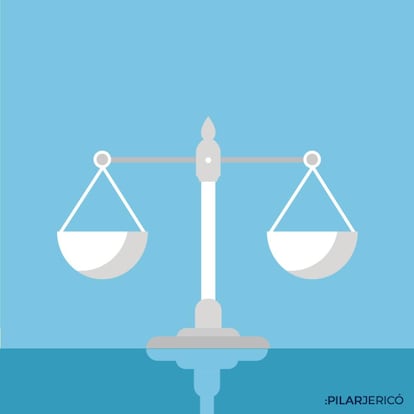How to keep calm in hectic times
Unlike fear or anger, restraint does not naturally arise in the face of threats
We need to have restraint when we are facing problems or living in hectic times. It is what allows us to cool our emotions, think clearly, and make smarter decisions, despite the circumstances. Restraint, however, can be challenging, especially when things hurt us or when we are in a group overrun with emotions. Unlike fear or anger, restraint does not come naturally to us in the face of threats. It requires time and using parts of our brain that don’t work as fast, as Daniel Goleman explains in his book Social Intelligence.

When we receive information, two pathways are activated in our brain: the “lower” path, where the emotional centers are located, or the “upper” path, where our reasoning is located. Between the two is the orbitofrontal cortex, which calibrates both zones for the making of decisions. When we see images that frighten, horrify, or fascinate us, the lower route is activated. And it is very, very fast, because of the neurons that populate it are up to four times larger in dimension than the average neuron. Their size and shape makes them communicate faster than any other kind – in as little as 500 milliseconds.
When we see images that frighten, horrify, or fascinate us, our emotional centers activate before our reasoning
Along with the lower route, we find the upper route of reasoning that differentiates us from other mammals. The problem is that it is slower and harder to activate when strong feelings are generated. When the groups we belong to have shared emotions, they are typically more intense and leave our reasoning brain idling. The reason for that is all about survival. If we see someone with a scared face running, we are likely to get out alive if we too are scared and running. Logically, this mechanism of contagion is not always practical, as is the case in adolescence, when people imitate behaviors that are not advisable, or in situations of panic or collective anger, when we can let ourselves become carried away without necessarily having a lot of common sense.
However, although our instincts and emotions are so fast and powerful, we can also use a little common sense. When we do not get carried away by the first thing that pops into our heads, we activate the prefrontal areas of our brain and start training restraint. It can be strengthened by using tricks that help us to stop, reflect, and achieve some distance. On the one hand, we need to reduce the impact of the lower path by observing emotions without falling into them. On the other hand, we need to activate the upper way by accessing other points of view and avoid incendiary comments that feed unhealthy emotions to establish realistic action plans.
Restraint is the conquest of our instincts and our basic emotions
In short, restraint is the conquest of our instincts and our basic emotions. Fear tends to enlarge and distort reality, especially in a collective sense. Restraint, however, neutralizes its impact, but to do this we need to know our faults, our resources, and ourselves. If we awaken the higher path, we can contemplate our problems for long enough to identify more options and live in a more serene life. Let's take advantage of troubled and hectic times to train our brains with restraint.
English version by Debora Almeida.
Tu suscripción se está usando en otro dispositivo
¿Quieres añadir otro usuario a tu suscripción?
Si continúas leyendo en este dispositivo, no se podrá leer en el otro.
FlechaTu suscripción se está usando en otro dispositivo y solo puedes acceder a EL PAÍS desde un dispositivo a la vez.
Si quieres compartir tu cuenta, cambia tu suscripción a la modalidad Premium, así podrás añadir otro usuario. Cada uno accederá con su propia cuenta de email, lo que os permitirá personalizar vuestra experiencia en EL PAÍS.
¿Tienes una suscripción de empresa? Accede aquí para contratar más cuentas.
En el caso de no saber quién está usando tu cuenta, te recomendamos cambiar tu contraseña aquí.
Si decides continuar compartiendo tu cuenta, este mensaje se mostrará en tu dispositivo y en el de la otra persona que está usando tu cuenta de forma indefinida, afectando a tu experiencia de lectura. Puedes consultar aquí los términos y condiciones de la suscripción digital.








































